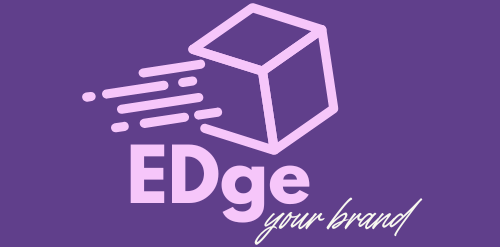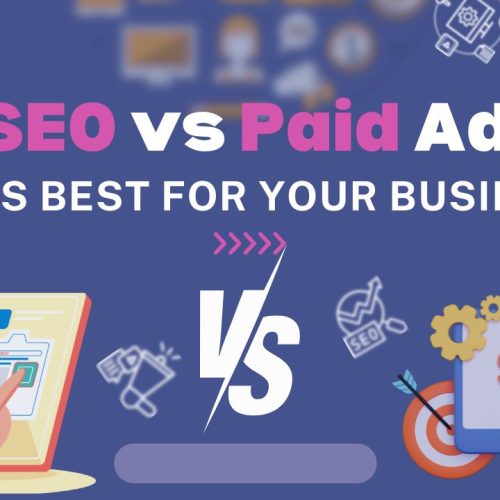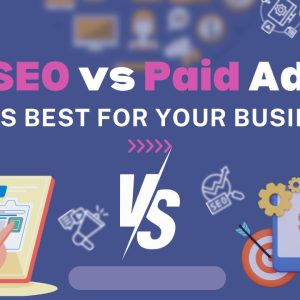In today’s digital age, social media isn’t just a place to share photos and catch up with friends—it has become one of the most powerful tools for businesses of all sizes. From small startups to established corporations, social media platforms like Facebook, Instagram, LinkedIn, Twitter, and TikTok have transformed how businesses interact with their customers, build brand awareness, and drive sales. The power of social media lies in its ability to connect businesses directly with their target audience, offer real-time engagement, and provide valuable insights that can shape marketing strategies.
Why Social Media Is Crucial for Business
The impact of social media on business can’t be overstated. It has leveled the playing field, enabling businesses to reach a global audience and connect with customers in ways that weren’t possible with traditional marketing channels. Here’s why social media is indispensable for any business looking to succeed in the digital world:
1. Boosting Brand Visibility and Awareness
Social media offers businesses an unparalleled opportunity to increase brand visibility. With over 4.7 billion social media users worldwide, platforms provide a massive audience to connect with. By regularly posting content that resonates with your target market, you can build brand recognition, make your business stand out, and become top-of-mind for potential customers.
Regular updates, engaging posts, and creative campaigns can expose your brand to new audiences, helping you reach customers who may not have discovered you otherwise. The viral nature of social media means that a single post, if shared widely, can exponentially increase your brand’s reach.
2. Direct Engagement with Customers
One of the biggest advantages of social media is the ability to engage directly with customers in real time. Whether it’s through comments, direct messages, or mentions, businesses can converse with their audience instantly. This level of direct communication helps to humanize your brand, build stronger relationships, and establish trust.
Customer engagement on social media is not limited to answering inquiries. It’s an opportunity to showcase your brand personality, solve problems, offer valuable advice, and show appreciation to your followers. Promptly responding to customer queries, resolving issues, or simply thanking users for their support can turn one-time customers into loyal brand advocates.
3. Targeted Advertising
Paid social media advertising allows businesses to target specific demographics with a level of precision that traditional advertising simply can’t match. Platforms like Facebook and Instagram offer detailed targeting options, allowing businesses to define their audience based on factors such as age, gender, location, interests, and even purchasing behavior.
This means you can create personalized ads for the right audience, ensuring that your marketing efforts are more efficient and effective. Whether you want to promote a new product, boost an event, or increase website traffic, social media advertising helps businesses reach the people most likely to convert into customers.
4. Driving Website Traffic and Conversions
Social media isn’t just a tool for engagement—it’s also a powerful traffic driver. By including links to your website, blog posts, or landing pages in your social media posts, you can direct your audience to places where they can learn more about your products or services and take action.
Social media platforms are inherently visual, making them perfect for showcasing products and services with compelling images, videos, or infographics. This not only drives traffic to your website but also increases the likelihood of conversions as users are introduced to your offerings in a more engaging and interactive format.
5. Real-Time Feedback and Market Research
Social media provides valuable real-time insights into customer preferences, behaviors, and opinions. By monitoring comments, likes, shares, and mentions, businesses can gauge how their audience feels about their products, services, or brand. This information can be used to refine your offerings, improve customer experience, and adjust marketing strategies.
For example, you can use polls and surveys on platforms like Instagram or Twitter to gather direct feedback from your audience. Alternatively, analyzing customer sentiment through comments and messages can help identify potential issues or areas of improvement. This immediate feedback loop allows businesses to stay agile and responsive to market needs.
6. Establishing Authority and Thought Leadership
Social media provides businesses with the platform to establish authority in their industry. By sharing relevant, informative content, businesses can position themselves as thought leaders in their field. Whether through blog posts, industry news, or expert commentary, consistently offering valuable insights can build trust with your audience and elevate your brand’s reputation.
For example, a business that provides software solutions might share tips, tutorials, or case studies on LinkedIn and Twitter, demonstrating expertise and providing real value to its followers. Over time, this consistent sharing of knowledge builds authority and fosters brand loyalty.
7. Cost-Effective Marketing
Compared to traditional advertising methods like print, TV, or radio ads, social media marketing is relatively inexpensive, especially for small businesses with limited budgets. Organic content, such as regular posts, videos, or blog articles, can reach a broad audience at little to no cost, aside from the time spent creating the content.
Even paid social media advertising tends to be more affordable than other forms of paid media. Social media platforms allow businesses to set their own budget, making it easy to start small and scale as needed. This flexibility allows businesses of all sizes to compete in a crowded market without breaking the bank.
8. Building Community and Brand Loyalty
Social media offers businesses a unique opportunity to create a community around their brand. Engaging with customers, sharing user-generated content, running contests or giveaways, and creating online groups or forums can foster a sense of belonging among your followers.
A loyal community is more likely to support your business, spread positive word-of-mouth, and become repeat customers. Through consistent interaction and valuable content, businesses can turn casual followers into passionate brand advocates who will not only continue to buy but also help promote the business to others.
Tips for Harnessing the Power of Social Media for Business
To fully leverage social media’s power for your business, keep these tips in mind:
- Consistency is Key: Post regularly to maintain visibility and stay top-of-mind.
- Engage with Your Audience: Respond to comments, direct messages, and feedback to build stronger relationships.
- Use Analytics: Track your social media performance using built-in analytics tools to optimize your strategy.
- Focus on Quality Content: Share valuable, relevant content that resonates with your audience and reflects your brand values.
- Be Authentic: Show the human side of your business to connect emotionally with your followers.
Conclusion: Embrace the Digital Age
The power of social media for business is undeniable. From boosting visibility and building relationships to driving sales and gaining valuable customer insights, social media has become an essential tool in the modern marketer’s toolkit. By developing a strategic approach to your social media presence, your business can thrive in an increasingly digital world.
Whether you’re a small startup or a large corporation, embracing social media can help you stay competitive, relevant, and engaged with your audience. Don’t just use social media—harness its full potential and watch your business grow










